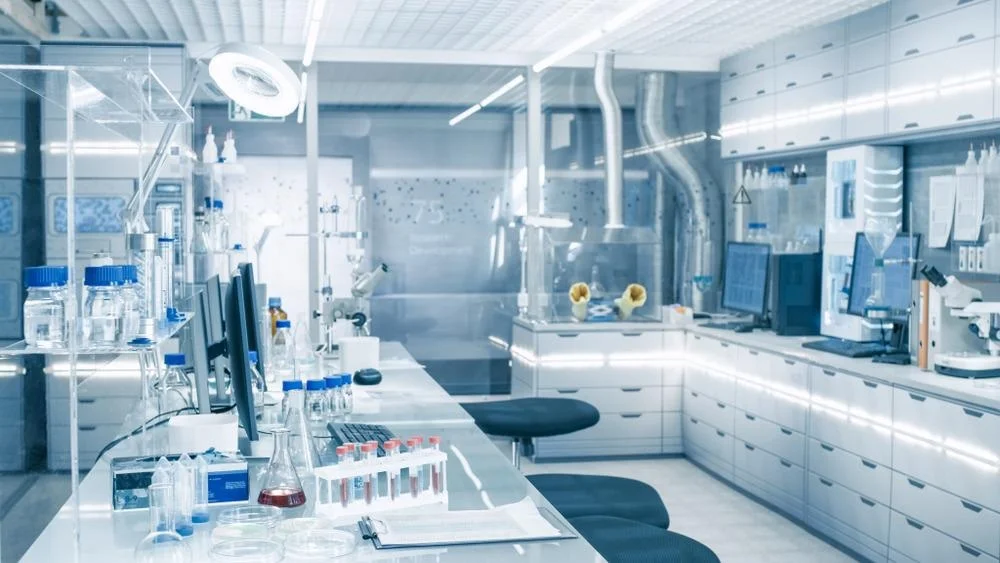Agricultural Soil Organic Contaminant Analysis
Understanding and managing soil quality is crucial in ensuring sustainable agricultural practices. Agricultural soils can be exposed to a variety of organic contaminants that may affect crop yield, soil health, and even human and animal health if not properly addressed. Our comprehensive Organic Compound Testing service specializes in identifying and quantifying these contaminants within agricultural soils. This service is essential for maintaining the integrity of your agricultural operations by ensuring compliance with local and international standards.
The process begins with a thorough field survey to identify potential sources of contamination. Once identified, soil samples are collected according to strict protocols to ensure accuracy. Our laboratory uses advanced analytical techniques such as Gas Chromatography-Mass Spectrometry (GC-MS) and High Performance Liquid Chromatography (HPLC) to analyze these samples. These methods allow us to detect even the smallest traces of contaminants.
Our service is designed to meet a wide range of regulatory requirements, including but not limited to ISO standards for soil testing. By adhering strictly to these guidelines, we ensure that our results are reliable and universally accepted. This approach guarantees that your operations remain compliant with international norms, thereby minimizing the risk of non-compliance fines or reputational damage.
Our team of expert chemists and technicians is dedicated to providing accurate and timely reports. These reports not only detail the presence and concentration of contaminants but also offer recommendations for remediation strategies if necessary. This proactive approach helps you make informed decisions about your agricultural practices, ensuring long-term sustainability and productivity.
We understand that every client has unique needs, which is why we tailor our services to meet those specific requirements. Whether it's a routine check or an emergency assessment, our commitment remains unwavering—your peace of mind and soil health are our top priorities. Our goal is not only to provide you with the best possible testing but also to contribute to the broader effort towards environmental stewardship.
International Acceptance and Recognition
- ISO 14688-1: This standard specifies the methods for sampling, preparation of soil samples, and analysis by GC-MS. It ensures that all procedures are conducted under controlled conditions to achieve consistent results.
- ASTM D2777: This practice covers the determination of organic compounds in water using a combination of extraction techniques followed by GC or HPLC with MS detection. The methods described here can also be adapted for soil analysis.
- EN 15432: European standard that provides guidance on the use of HPLC for the determination of organic compounds in environmental samples, including soils.
- IEC 60784-3: While primarily focused on electrical equipment, this international standard can be referenced for the quality assurance measures we implement during our testing processes.
Competitive Advantage and Market Impact
The ability to accurately identify organic contaminants in agricultural soils provides a competitive edge by enabling proactive management of soil health. This foresight can lead to improved crop yields, reduced risks associated with food safety concerns, and enhanced market reputation.
In today’s global marketplace, compliance with international standards is not just a requirement but also a strategic advantage. By adhering to these standards, you demonstrate your commitment to quality and sustainability, which can significantly boost your brand's image among consumers who are increasingly concerned about the environmental impact of their food choices.
Moreover, our service helps you stay ahead of regulatory changes by providing timely insights into potential issues before they escalate. This foresight allows for early intervention in case of contamination risks, preventing costly disruptions and ensuring continuous operation.
Use Cases and Application Examples
In the context of agricultural soil organic contaminant analysis, our service finds application in various scenarios:
- Regulatory Compliance: Ensuring that your agricultural practices meet local and international regulations regarding soil quality.
- Risk Management: Identifying potential sources of contamination early to prevent costly remediation projects later on.
- Sustainability Initiatives: Supporting initiatives aimed at reducing the environmental footprint of agricultural operations.
- R&D Support: Providing data that can be used in research and development efforts focused on sustainable agriculture practices.





